Goalkeepers have the most unforgiving job in football. No matter how many goals they save, or how many incredible saves they make, they are always remembered for their mistakes. If an outfield player makes a mistake, they can pick their head up and make up for it, however, if a goalkeeper makes a mistake then it often leads to a goal.
David de Gea was the best goalkeeper in the world a few seasons ago, but his recent dip in form has caused his reputation to be somewhat tarnished. He has plenty of critics now, who are focusing only on his mistakes and ignore his still-world-class saves.
This data analysis will look at whether de Gea’s performances have actually dropped, or whether the high standard that he has set for himself means that his average performances make him appear worse. This analysis will look at de Gea’s stats over the past five seasons to see how much his performance has decreased. We will then look at his recurring mistakes, and how he can improve on these.
How does de Gea rank amongst Premier League goalkeepers?
De Gea’s form started to dip during the 2018/19 season and continued into the 2019/20 season. To get a good understanding of how de Gea ranks amongst Premier League goalkeepers, we will look at the most recent season, and his best season in a Manchester United shirt, where he was included in the PFA Team of the season back in 2017/18.
De Gea was criticised a lot this past season for his numerous mistakes, but how has he performed as a whole?
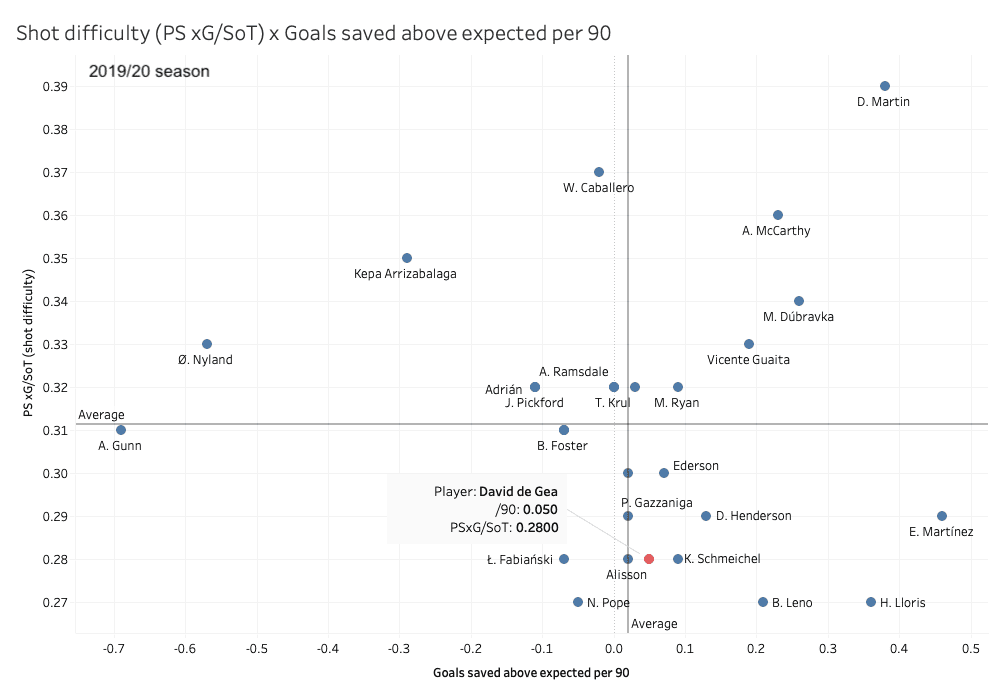
The above graph measures each goalkeeper’s goals-saved above/below expected per 90 against their shot difficulty from the 2019/20 season. As we can see, de Gea’s stats are not great, however, by no means are his stats bad. In fact, he ranks right next to Liverpool’s Alisson. Although he saves 0.05 more goals than he is expected to per 90, the shots that he faces aren’t very difficult. This graph proves that de Gea’s high standard means that he gets scrutinised for normalised mistakes.
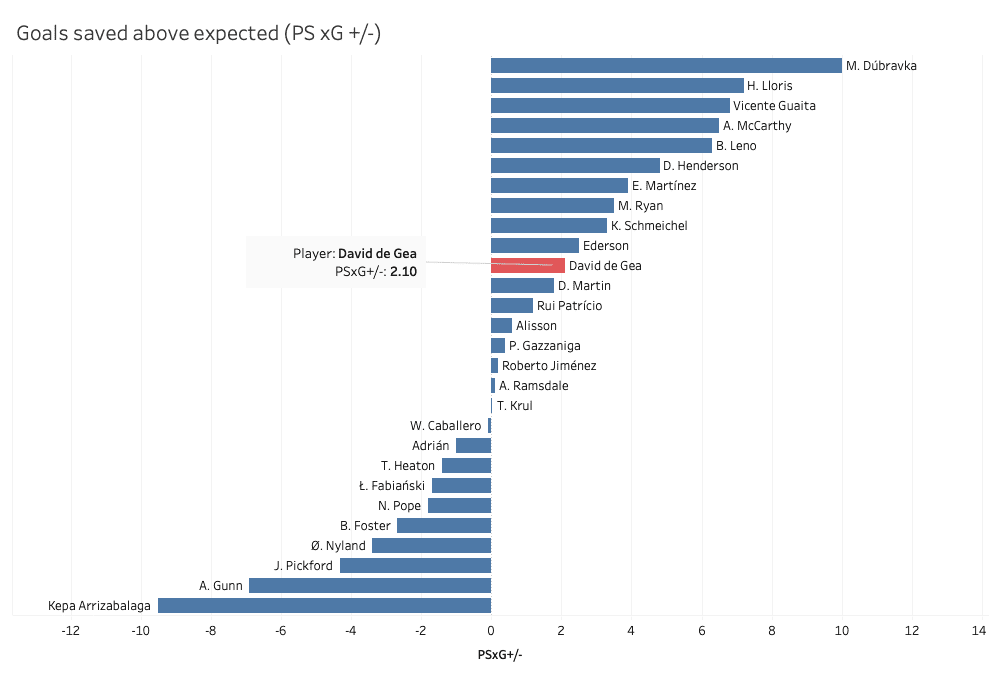
This graph shows us how many goals above/below expected that each goalkeeper saved. As we can see, de Gea has still saved more goals than he was expected to (2.1), meaning overall, he still had a good season. However, these stats don’t take into account how costly the errors he made were in terms of the match outcome.
As we can see, de Gea has had an average season. The harsh criticism in the most recent season has painted a negative image of him. Even though he is making more mistakes, he is still consistently making good saves. This criticism is a result of him not meeting the high standards he had previously set, especially in the 2017/18 season.
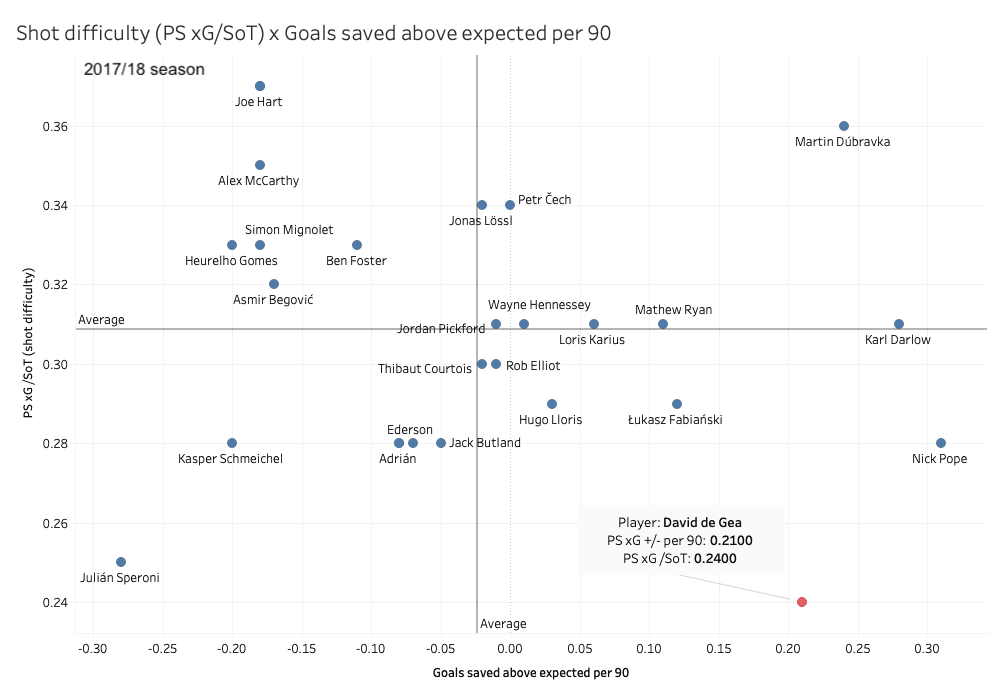
The 2017/18 season was the last season Manchester United really challenged for the Premier League title, as shown in the data. This was mainly down to their excellent defence and goalkeeping. They finished the season with the second-best defence, thanks to an outstanding season from de Gea.
The above graph shows how good their defence was, but also how good de Gea was. The Spaniard faced the easiest shots but also saved 0.21 more goals than he was expected to per 90. This was easily de Gea’s best season for Manchester United.
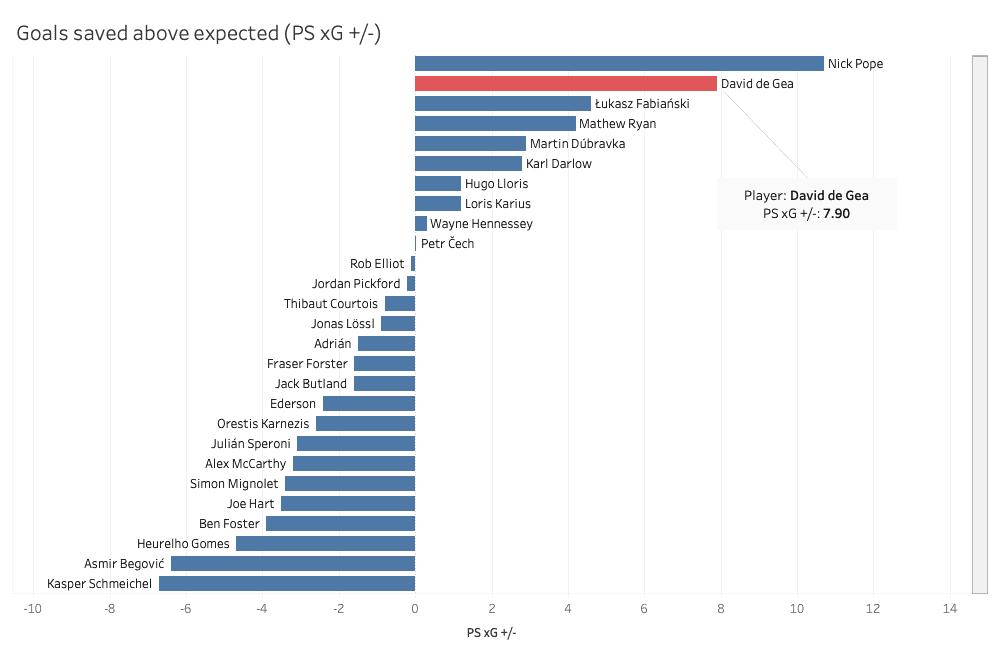
The 29-year-old saved an incredible 7.9 goals more than he should have throughout the season. It’s the second-highest after Burnley’s Nick Pope. His stats look infinitely better when you compare him to the other top team’s goalkeepers. Most of them in the 2017/18 seasons had a minus PS xG +/- value.
By looking at these graphs, it’s clear that the level of de Gea’s performances have decreased. This coincided with Manchester United’s loss of quality, meaning the Spaniard was playing behind a weaker team.
How bad is David de Gea?
Just from watching David de Gea recently, we know that his quality has dropped. However, only the statistics, when compared to the league average, can tell us how much quality he has lost. The below graphs will compare de Gea’s stats from the past five seasons.
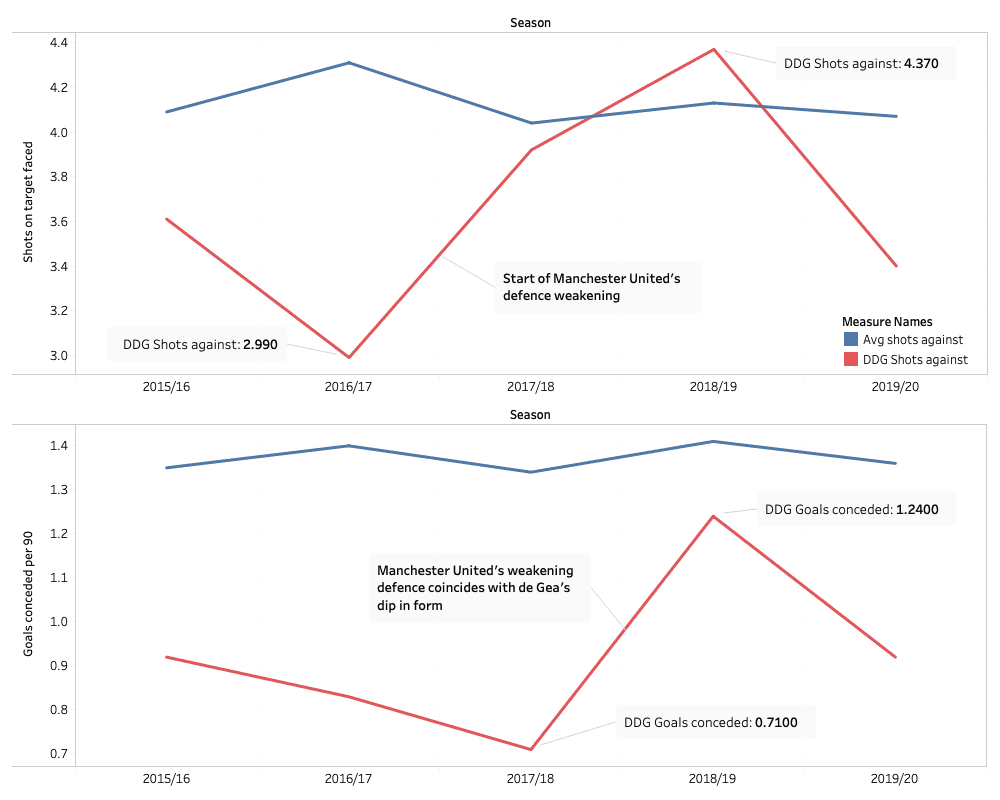
This graph shows us stats that can be related to his team’s defence. Shots on target faced and goals conceded will often correlate to the team’s quality at the back.
We can see in both graphs that Manchester United’s defence got significantly weaker in the 2017/18 season. However, the difference in shots on target faced and goals conceded is a testimony to how good de Gea was. We can also see that the dip in de Gea’s form from the goals conceded stats in the 2018/19 season.
Manchester United’s stats are all below the average, apart from their shots on target faced during the 2018/19 season. This is outlining once again how de Gea’s dip in form coincided with their defence weakening.
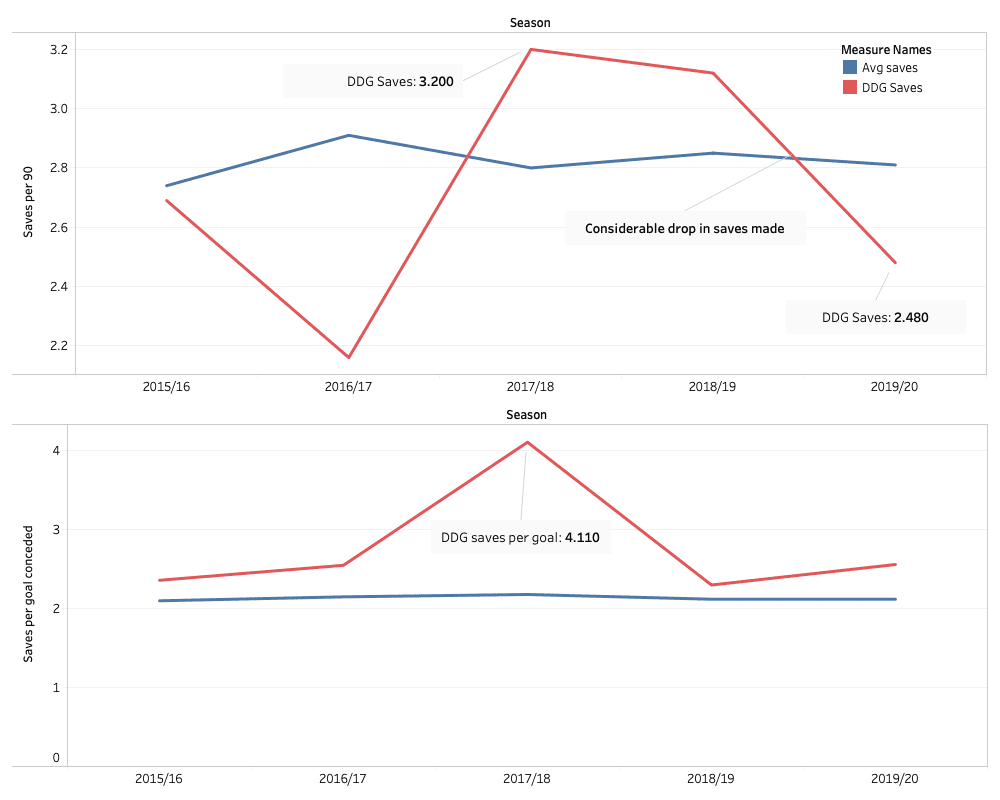
This set of graphs show us how many saves de Gea made per 90 and how many saves he made before conceding a goal. In terms of saves made, de Gea’s decline came in the 2019/20 season. In the 2018/19 season, de Gea was still making saves with a weaker defence, however, in the most recent season, his mistakes became more common.
In the second graph, we can once again see how good he was during the 2017/18 season, making 4.11 saves before he conceded. De Gea’s saves-per-goal stat is still above the league average, proving again that he is the victim of his own downfall with his high standards, making him more susceptible to criticism.
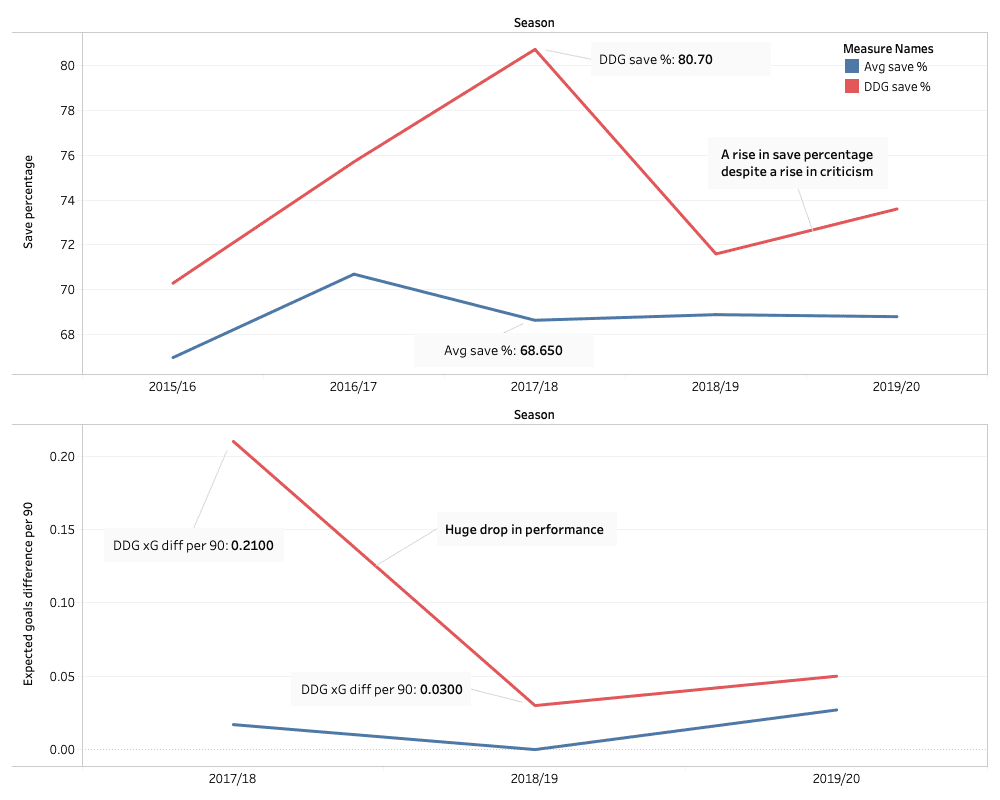
Here, we see de Gea’s performance-based stats compared to the league average. In terms of save percentage, de Gea’s saving a higher percentage of shots this season than he did in 2015/16 and 2018/19. This shows that his performance hasn’t necessarily decreased, rather he is facing more shots now.
However, we can still see how much his performance, and expected goals difference per 90, dropped between the 2017/18 and 2018/19 season. He went from saving 0.21 goals per 90 to just 0.03. But this stat did improve during the 2019/20 season. Once again, both stats are constantly above the league average.
After studying these graphs we can see that de Gea’s performance peaked during the 2017/18 season. And it appears that many people compare de Gea’s performances to this great season, rather than his Manchester United career as a whole. De Gea is still above the league’s average in the majority of stats, proving that he is still of value to his team. The Spaniard also improved during the 2019/20 season, aided by a much better Manchester United defence.
What are de Gea’s major flaws?
Before the 2018/19 season, de Gea rarely made mistakes. All that his critics saw were world-class save after world-class save. However, now, his world-class saves are overshadowed by his common mistakes. As per the job of a goalkeeper, nobody remembers his best saves when he’s making mistakes.
David de Gea has been consistently making mistakes, especially during the 2019/20 season. This is the result of numerous things. The Spaniard’s loss of form coincided with the departure of his goalkeeping coach, Emilio Alvarez. The two worked together at both Manchester United and Atlético Madrid. His mistakes were a combination of this and bad save technique. And this subsequently led to a loss of confidence.
Although de Gea has made a plethora of uncharacteristic mistakes this past season, there was one technical flaw that stood out. This was his ability to save shots close to his body. It is often easier for a goalkeeper to save shots further away from their body as there is a clear save technique. We have seen this in recent years with many top goalkeepers, including Tottenham’s Hugo Lloris.
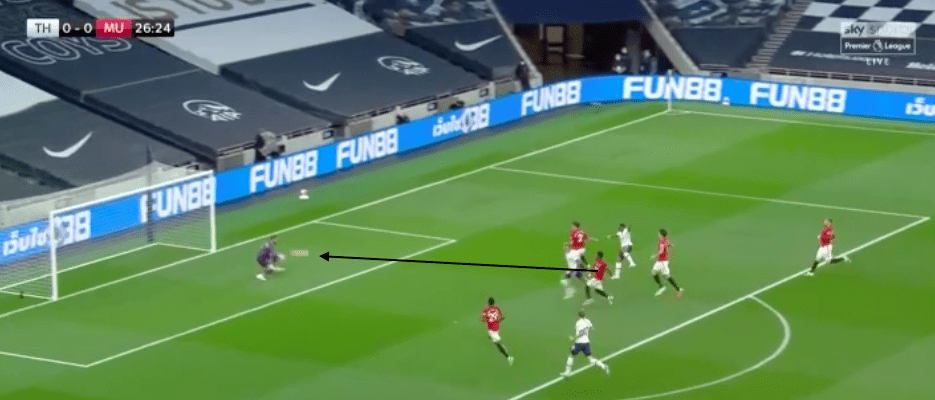
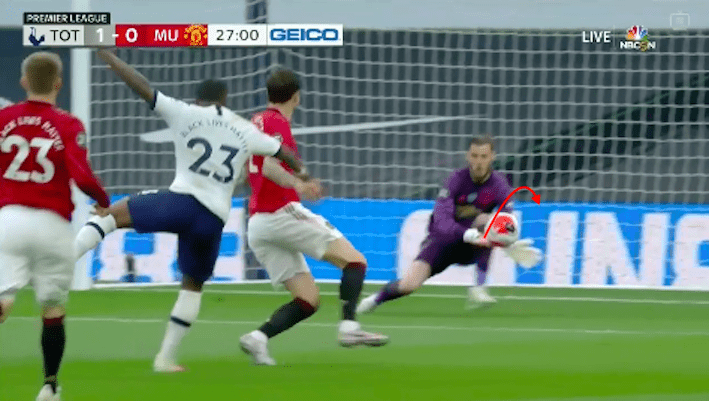
The 29-year-old made a costly mistake against Tottenham, letting in an average shot that he should have dealt with. The keeper’s starting position is good: he’s protecting his near post as well as readying himself for a shot across the goal. However, de Gea doesn’t get his body behind the ball, meaning that if he doesn’t get a strong hand on the ball, it will hit him and still go in, which is what happened. If de Gea gets his body behind the ball, there is more of a chance that the ball will hit his body and ricochet away from the goal. Bergwijn’s shot had just a 7% chance of beating the keeper.
Errors like this are down to technique. As we can see in the second image, the ball is very close to de Gea’s body, meaning he will almost certainly save it with a strong touch on the ball. His inability to deal with shots close to his body has arisen because he relied on saving with his feet. If a shot is close to his body, but not on the floor, he struggles to save it.
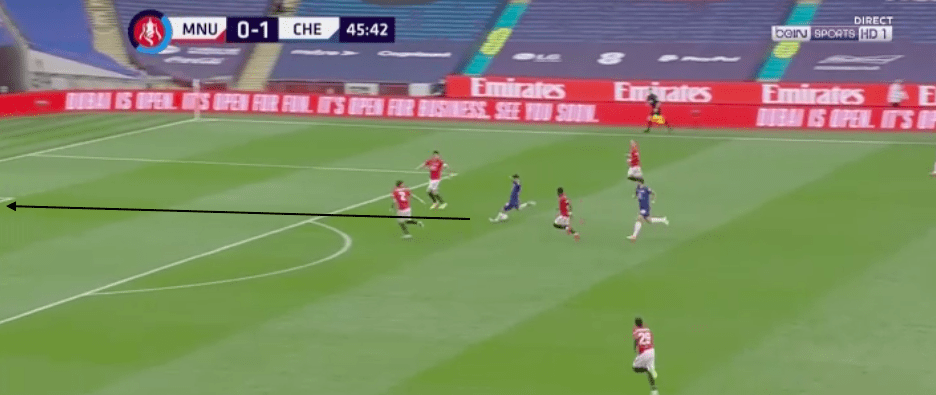
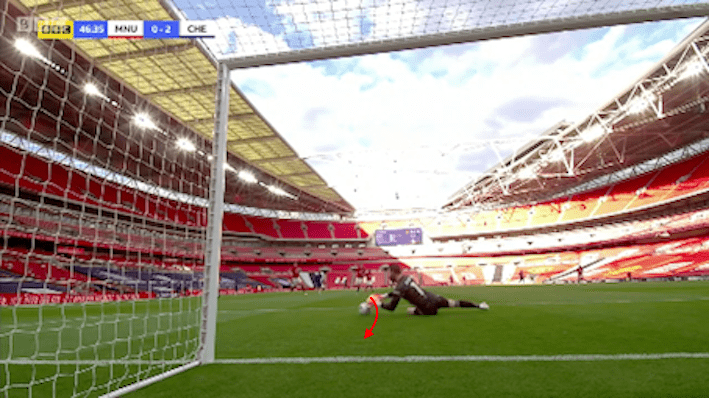
He made a similar mistake against Chelsea in the FA Cup semi-final. This shot was an easier shot to save than the previous example. Mason Mount’s shot was from outside the box and had less power, once again proving that it was a technical error from de Gea. This time he gets his hand to the ball again, however, it goes underneath him. De Gea is caught out by Mount’s early shot, meaning his start position is fairly bad.
His bad position means that he has to dive backwards, meaning the ball is more likely to go behind him than to the side. Also, getting his body behind the ball would help him block the shot if it slips through his hands. This was a costly mistake for Manchester United, putting them two goals behind.
As evident, de Gea needs to work on his technique when facing shots close to him. He needs to become less reliant on his feet and use his frame more as a wall to prevent these errors. The mistakes have caused him to lose confidence, meaning more errors are creeping into his game.
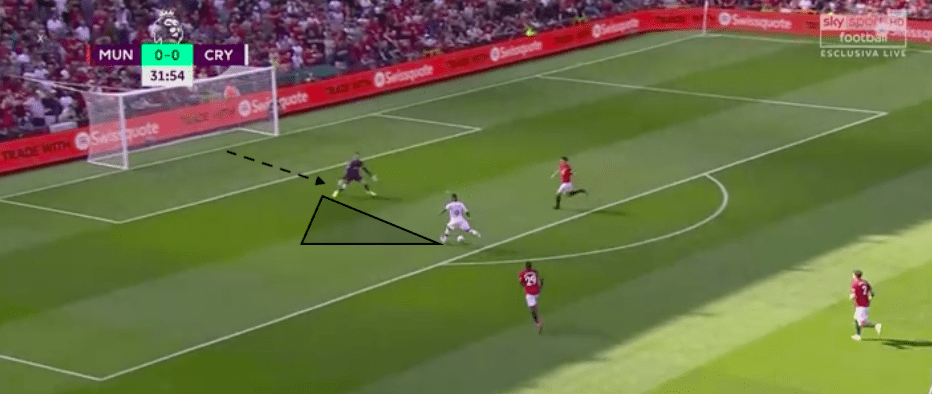
Being able to deal with one-on-ones situations is a huge strength for a goalkeeper, but it’s also a skill that takes a lot of confidence. De Gea has struggled with this recently.
In the above example, against Crystal Palace, we can see how de Gea engages Jordan Ayew but leaves a large portion of the goal open. This gives Ayew an obvious decision. De Gea engaging as far as he does, and Ayew’s awareness to take the shot early means that the keeper has almost no time to react.
As well as technical errors, de Gea has been more likely to make sloppy and uncharacteristic errors too.
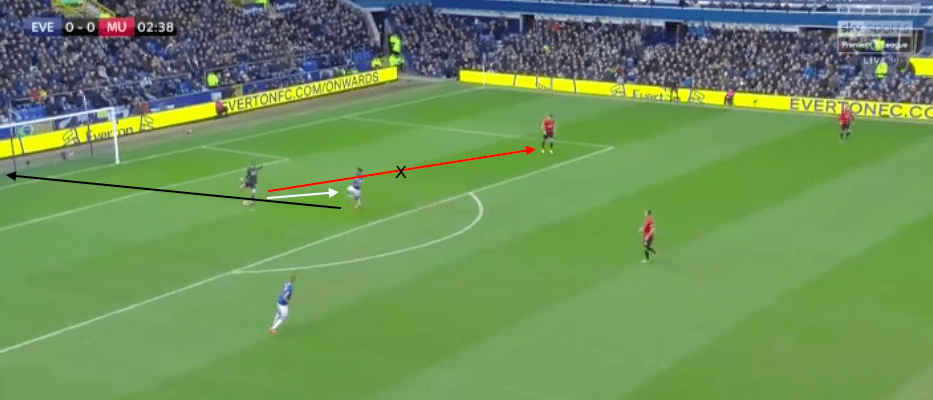
Against Everton, de Gea, who is usually very reliable with the ball at his feet, decides to ignore easier short passes to go more direct. However, he takes too much time and his clearance ends up hitting Domonic Calvert-Lewin and rebounding into the goal. Errors such as this have become much more frequent in de Gea’s game during the 2019/20 season as a result of less confidence.
Why de Gea is still a world-class goalkeeper
Taking all his mistakes into consideration, the Spanish international is still having more of a positive impact on his team than negative. During the 2019/20 season de Gea still pulled off some of the saves of the season.
One of de Gea’s best saves came against Liverpool when he pushed Jordan Henderson’s strike wide of the goal with his fingertips.
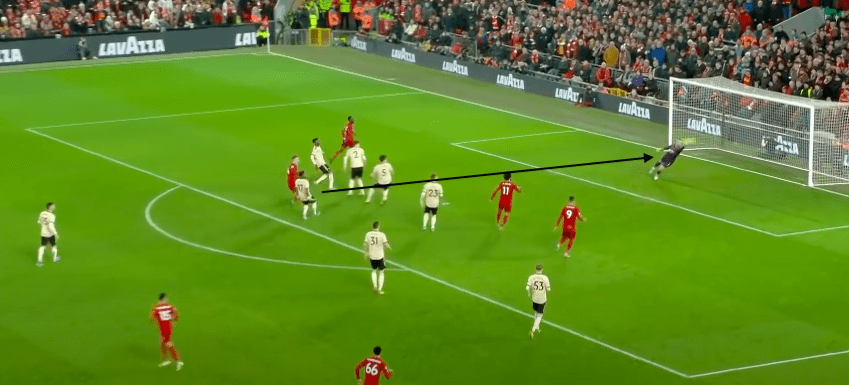
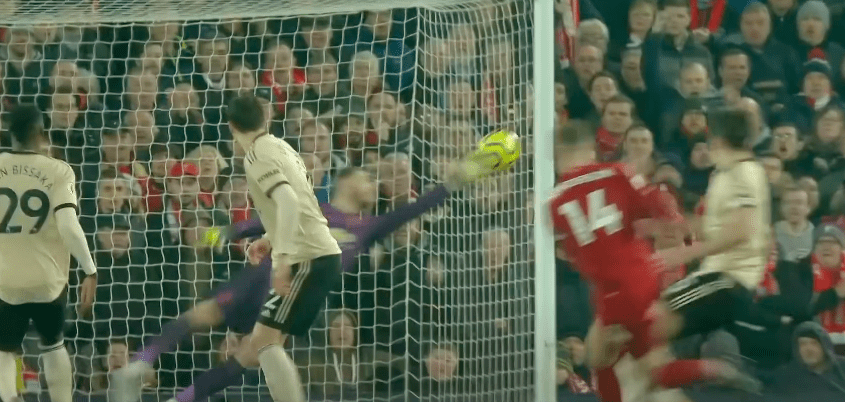
In this example, de Gea has an optimum starting position. He’s not too far away from his line so that he can dive forward, getting a stronger hand to the ball. But at the same time, he’s far back enough to give himself enough time to react to the shot. The Spaniard can use his footwork and 6’4 frame to tip the ball wide of the post with his fingertips.
De Gea often picks the best technique to save more difficult shots because it’s further away from his body, meaning that he can use his arms to save rather than needing to get his body behind the ball.
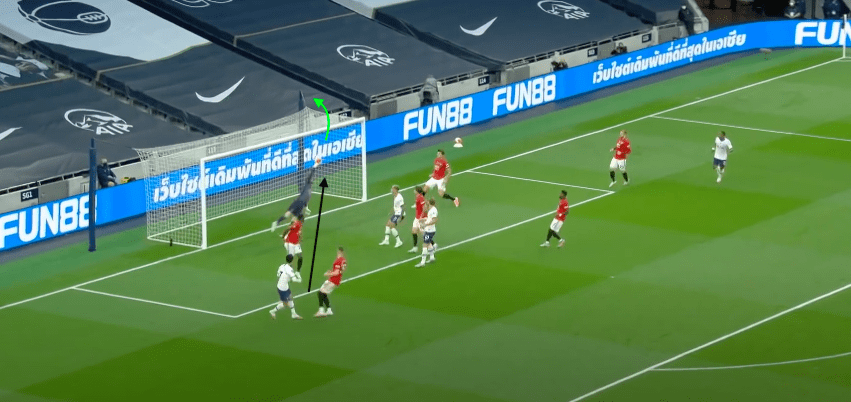
Against Son Heung-min, de Gea faces a tough save close to his goal. Given where Son is, de Gea is in a good starting position. He then uses his excellent reflexes to react to where the ball is going, and this time it’s combined with the correct technique. He uses his right hand to get a higher reach and generate more power to ensure the ball goes over the bar rather than guiding it into the net.
Conclusion
After looking at de Gea’s stats from previous seasons compared to the most recent season, it’s clear that his performances have declined. The 2017/18 season was by far the best of his career, from a personal standpoint. However, his bad form, joined with the decrease in personnel quality within the Manchester United team, has led to consistent mistakes creeping into his game.
David de Gea is by no means a bad goalkeeper, the majority of his statistics are still above the league average and he still produces world-class saves. The Spaniard must work on his technique to save easier shots and those closer to his body if he wishes to gain back confidence and the quality that he is known for.

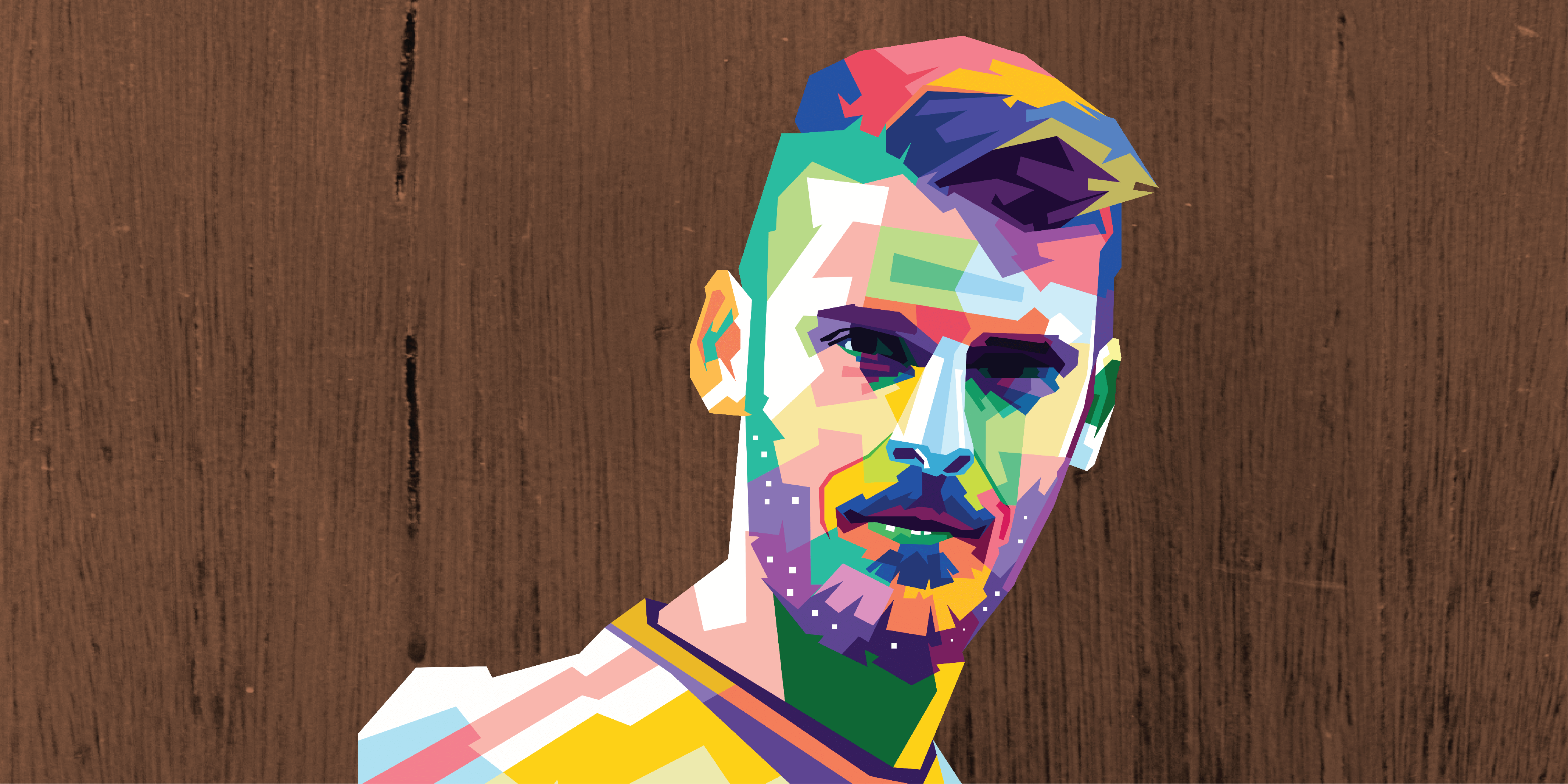
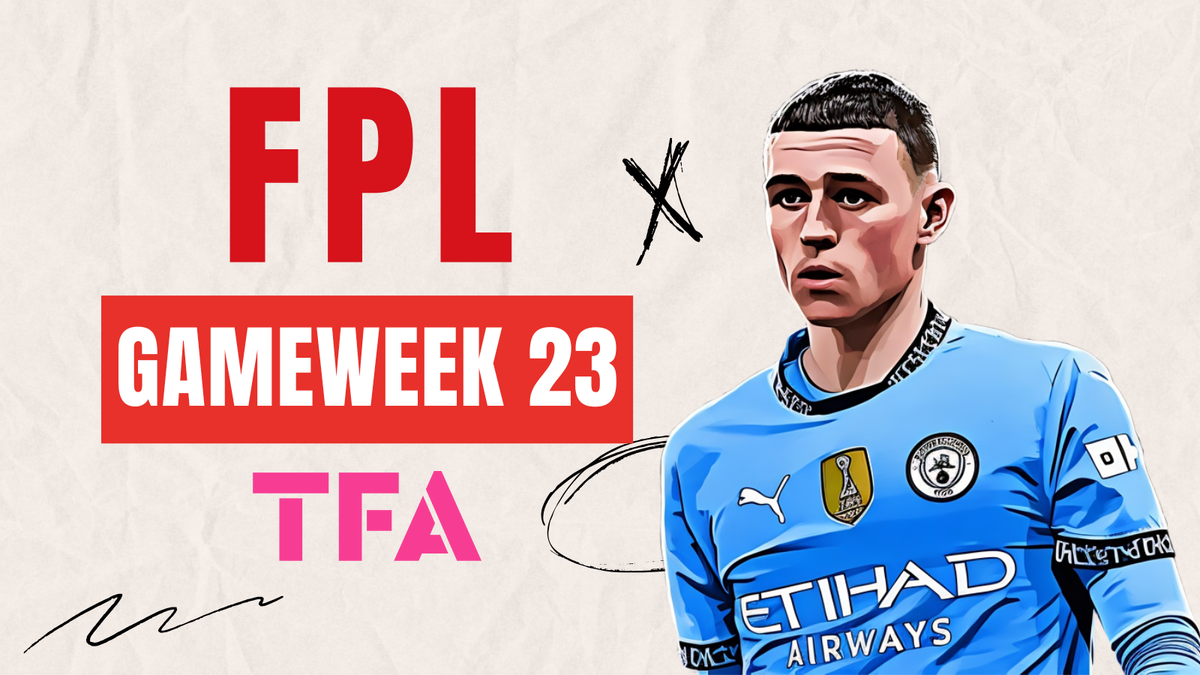
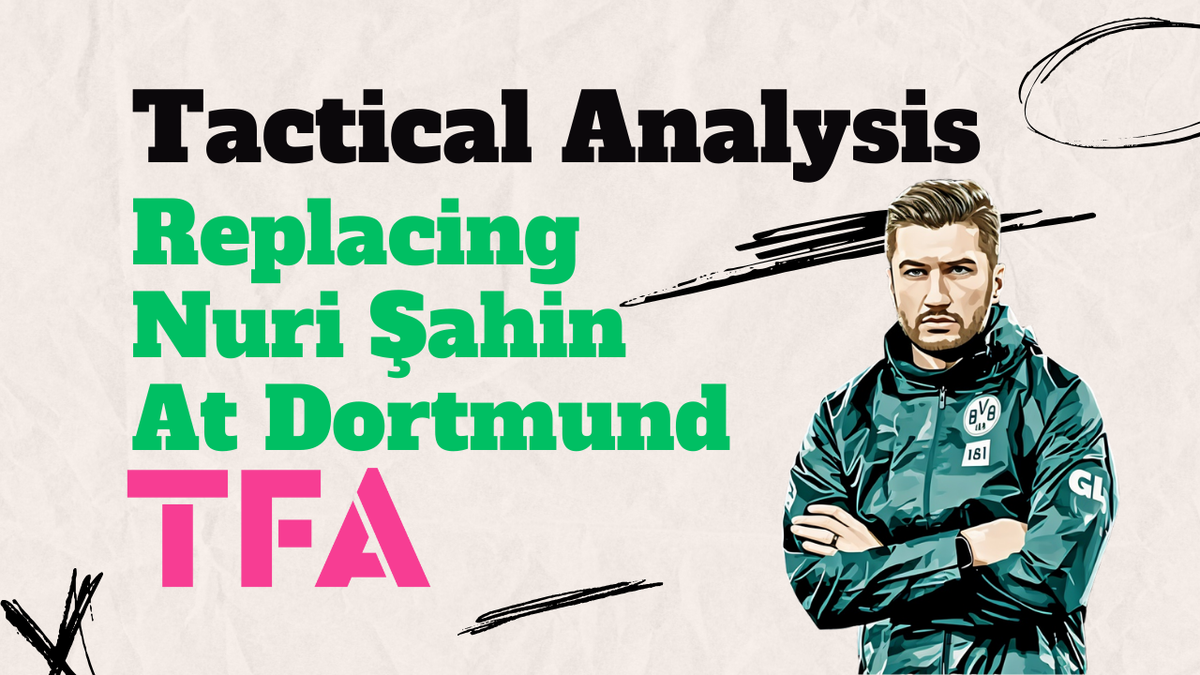
Comments